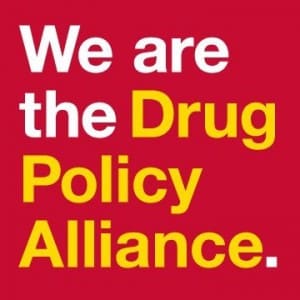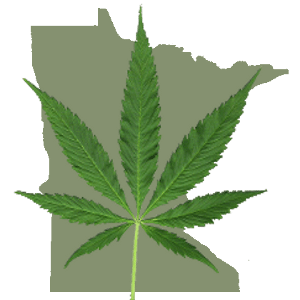 Which states will be next to legalize marijuana? What needs to happen to end mass incarceration? What can be done to pressure the Obama administration and the next President around drug policy and criminal justice reform? What are some solutions to the national overdose crisis that takes more lives than car accidents or gun violence? Why do black people go to jail for drugs at 13 times the rate of whites even though they use and sell drugs at similar rates? What role can faith leaders play in organizing and mobilizing their congregations to end the drug war?
Which states will be next to legalize marijuana? What needs to happen to end mass incarceration? What can be done to pressure the Obama administration and the next President around drug policy and criminal justice reform? What are some solutions to the national overdose crisis that takes more lives than car accidents or gun violence? Why do black people go to jail for drugs at 13 times the rate of whites even though they use and sell drugs at similar rates? What role can faith leaders play in organizing and mobilizing their congregations to end the drug war?
More than 1,200 people will gather to ponder these questions and many more at the International Drug Policy Reform Conference in Arlington, VA November 18-21 at the Crystal Gateway Marriott Hotel.
In the past decade, voters and legislators have enacted hundreds of drug policy reforms that reduce the role of criminalization in drug policy. Building on the momentum from these victories, more than 1,200 drug policy experts, health care and drug treatment professionals, elected officials, law enforcement, students, and formerly incarcerated people from around the country and across the world will gather to promote alternatives to the failed war on drugs.
Below is a small sampling of the 50+ panels at the conference. Check in the near future for a full list of panels, including descriptions and speakers: https://www.reformconference.org/program/schedule
Ensuring Inclusion, Repairing Damage: Diversity, Equity and the Marijuana Industry
- This roundtable will focus on how the war on drugs has harmed multiple generations through criminalization and mass incarceration. As marijuana legalization efforts move forward, who will control the industry and what will be the barriers to entry? Most importantly, how can the “green rush” be a road to repair for the traditionally marginalized and underserved?
Beyond Marijuana: The Impact of Marijuana Legalization on Broader Drug Policy Reforms
- Despite marijuana’s broad and growing social acceptance, marijuana law violations make up almost half of all drug arrests nationally. Because of this, marijuana legalization is often touted as the first step toward dismantling the war on drugs, but legalization advocates often distinguish the substance from other illicit drugs. With this in mind, how can marijuana legalization further the movement to decriminalize other drugs?
The Drug War and the Militarization and Bastardization of Police
- Even though some communities have always known police brutality, issues of impunity of action and corruption are now touching upon the mainstream like never before. Supported by lawmakers and the judiciary, the police have become militarized and bastardized. What has caused the condoning of an ever increasing violent police force and how has the politics and violence of the drug trade and the drug war directly assisted with this phenomenon?
MDMA and Other Psychedelics: What Does Legal Access Look Like?
- We all agree that criminalization of all drugs needs to end, and marijuana legalization has provided one model for that. Public and political support for moving immediately to the same model for other drugs is low – so in what other ways can we end criminalization and create legal access for MDMA and other psychedelic drugs? What would a medical model look like? Would a spiritual model using approved guides work for something like ayahuasca? What about licensing users or specific venues? And would any of these models show promise for drugs with addiction potential like cocaine, methamphetamine or heroin?
Reform For Those Who Sell Drugs: The Third Rail of Drug Policy Reform
- This roundtable will broach the subject of advocating for drug sellers. As we look to minimize the use of the criminal justice system where drug policy is concerned, how do we distinguish the drug dependent subsistence dealer and the more common mid-level drug dealer who’s not dependent? Does compassion and the public health approach extend to those who sell drugs?
The Future of Digital Spaces, Drug Sales and Drug Policy
- Shutting down the Silk Road and sentencing Ross Ulbricht to life in prison not only failed to end global online drug transactions, but actually led to having more digital drug marketplaces today than ever before. Join leading experts to discuss the benefits and risks of this new model of drug sales and how they can be used to help end the war on drugs.
Supervised Injection Facilities
- Supervised injection facilities (SIFs) have been a crucial part of harm reduction initiatives allowing people to consume illicit drugs in a supervised, often clinical space. However, questions remain concerning the advantages SIFs offer and their role in addressing the HIV epidemic among people who use drugs. This session will cover campaigns and strategies, both in the United States and internationally.
Drugs and America’s Pop Culture: America’s Untold Story!
- From Bob Dylan to Nina Simone, Paul Robeson and Harry Belafonte, successful American artists have traditionally played a leading role in addressing social and political issues of their time. Have political activism and America’s pop culture parted ways? If the criminal justice system is today’s civil rights issue, what will it take to engage a cadre of pop artists who fully embrace art as politics?
Criminalized, Marginalized and “Othered”: Lessons and Strategies for Fighting the Drug War in Hard Places
- This roundtable will focus on the diverse demographics among drug users. From pregnant women to individuals in LGBT circles and HIV-affected communities, what strategies are working and what can our movement learn about organizing with criminalized, marginalized and transient constituencies? How do we build a more robust movement that addresses the challenges and concerns of those least visible and most vulnerable to drug war policies?
What Does Drug Education and Prevention Look Like in the Age of Marijuana Legalization?
- Despite successful marijuana legalization campaigns in Colorado, Washington, and the District of Columbia and California’s potential legalization vote in 2016, the rhetoric of “Reefer Madness” type messages are being renewed even though recent studies show that teen marijuana use is falling as more states legalize it. This discussion will bring together drug education and prevention experts to highlight the current research findings and map out a path for effective drug education and prevention in the age of legalization.
United Nations: What’s the Opportunity?
- The U.N. General Assembly Special Session (UNGASS) on Drugs is less than a year away. This gathering presents an immense opportunity to build international momentum to end the war on drugs and highlight countries that have taken significant steps in implementing sensible drug laws. This roundtable will focus on the set of “outside game” strategies taking place and ways in which UNGASS can advance the drug policy movement’s common agenda.
Are the Party Kids Any Safer Yet? EDM Festivals, the Music Industry and Harm Reduction
- Festival event producers are in a tough spot: always trying to balance demands for “zero tolerance” drug-free events versus trying their best to prepare for attendees who will use drugs. How are festivals starting to integrate drug education and onsite harm reduction services to keep their attendees safe? What challenges and limitations still remain? Will a national effort to change federal RAVE Act legislation clear the path? What more could be done?
E-Cigs and the Future of Maintenance Therapies
- Electronic cigarettes have been the center of considerable controversy between those who see them as a public health threat and those who see them as a valuable harm reduction tool. This roundtable will discuss e-cigs as an alternative source of nicotine for those who cannot or will not quite smoking traditional cigarettes and whether these devices could herald a new era of maintenance therapies or a new era of cracking down on them.
In addition to those curated panels, the Reform conference will also feature three large plenary sessions, four documentary film screenings, mobile tours of Washington, D.C.’s drug war history, and three-dozen community-based sessions led by conference participants. Finally, the conference will host a national live town hall (available via livestream and teleconference) exploring intersections between two of the most vibrant social movements in the country today, reforming our failed drug policies and Black Lives Matter.
The Drug Policy Alliance is co-hosting the 2015 International Drug Policy Reform Conference with the ACLU, the Harm Reduction Coalition, Institute of the Black World, International Drug Policy Consortium, Law Enforcement Against Prohibition, Marijuana Policy Project, Multidisciplinary Association for Psychedelic Studies, National Organization for the Reform of Marijuana Laws, Open Society Foundations, Samuel DeWitt Proctor Conference, and Students for Sensible Drug Policy. For a full list of partners, more information on the conference, and registration details: Visit https://www.reformconference.org/.





